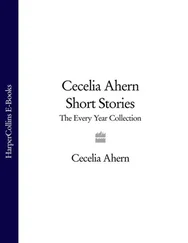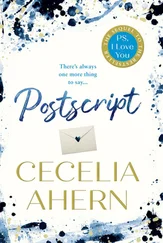
How did you come about creating Mary-Rose and Sam, and Sam’s unusual tendency to want to constantly propose to her in a public setting? What motivated Sam, do you think?
My husband and I never had a proposal moment, we were together for ten years and just decided to get married. It was a joint decision, nothing like in the movies, just a conversation one day where we finally agreed on when we were going to do it, because if had stopped being a question. When we were on honeymoon in Venice, getting dolled up for our first night out for dinner, I thought that it would be funny if we had our proposal that night. Just because we never had one. Then my mind started thinking about it – what if somebody overheard us and thought it was the real thing, we would have to pretend, then what if it became so big we had to really lie, what if the manager made a big deal, made an announcement, struck up the music, sent the musicians to our table to serenade us… We would have everybody’s attention, everybody’s best wishes, possibly even a free drink and we wouldn’t be able to admit the truth, it would have gone too far. I thought it was funny, then I thought about a couple who would do that every night, take advantage of people’s kindness in a different restaurant just to get a free drink or a free meal.
The following night we were out for a meal and the couple beside us told us they had just got engaged, he had proposed to her on a gondola. Not thinking about my idea from the previous night, we automatically sent over two glasses of champagne to their table. Then I realized what I’d done and knew I had to write the story about the couple.
Sam and Mary-Rose were born.
We never did have our proposal.

After a day spent writing about a character going through a difficult time, do you feel quite emotionally exhausted by the time you leave your office and go home?
I walk home from the office and whether it’s in wind, rain, sleet or snow, I need that time to blow the thoughts out of my head, to get out of the world that I’ve been living in all day so that I can go home and be a person that lives in this world. The walk helps me remember that my character’s problems are not mine and that whatever I’ve lived through has not been my reality. I’m glad that I care that much when I’m writing, otherwise the writing wouldn’t have the emotion that is integral to the telling of the story, but I think it’s healthier, when you have a family at least, to leave that behind in the office and pick it up again the next morning. It’s taken me some years but I think I’m almost there. But like everyone coming home from work, one’s head is burning and you have to let the flames go out before you walk in the door to your house.

Kitty starts off as quite a troubled character who doesn’t always make the best decisions – did you ever get frustrated with her?
When we meet Kitty, she approaches life and people in a way that I never would and yes, her ways annoyed me. I felt she was greedy, always wanting more from people than they were willing to give, trying to find out more in a dishonest way. She didn’t respect privacy, she wasn’t honest. But I soon changed her, control freak that I am. She develops a conscience and learns that having one doesn’t ruin her ability to tell a story, it actually makes it better because she starts to connect with people again. And when you connect with people they trust you and when they trust you, they talk. She remembers the story is about them and not her.

Constance advises Kitty that telling a story is about seeking the truth, getting to the heart of what is real. Is that what you aim for in your writing, too?
People ask if there’s ever a part of me in any of my main characters and while people will be looking for similarities between Kitty and me, it’s really Constance that I’ve chosen as my vessel to air my opinions!
I think often reporters want to tell their own story, they hear something which interests them, they perhaps talk to the person the story is related to and then they spin it, in a direction which suits them. Sometimes it’s better and more interesting to just listen to what the person has to say. That’s the story. It doesn’t have to make sense, it doesn’t have to be clever, it doesn’t have to all add up, there doesn’t have to be a reason for everything. Sometimes things just are as they are. Ask the right questions, listen to the answers and write it. When I’m writing, even though I’m writing fiction, I have to write what I believe is real. Would somebody really feel this way in this moment? If it doesn’t feel right, I can’t write it.
While I was writing The Time of My Life , in the opening chapters Lucy Silchester is talking about her life. Even though it was all the information I wanted to convey and I was describing the life I wanted her to have, it didn’t feel authentic, something about it felt like a writer writing her words rather than what she would actually say. I kept reading it over wondering what I could tweak to make it feel more real. I couldn’t tweak anything. I’d have to delete it. But I liked it. I liked how I’d written it. I liked how she sounded. Then I figured it out. So after her long introduction about who she was and what she was about, I simply wrote, “Okay. I lied.” This felt right. Lucy, the compulsive liar was born. She would lie about everything. She would always tell stories about herself which weren’t true but through hearing her lies, her truth would be known. That felt real. For me, that was getting to the heart of what was real.
I don’t think writers should be writing what they think people want to read, I think they should be writing about what moves them, what they find interesting and only then will the reader care. Likewise, I think that people whose job it is to find the stories shouldn’t be looking for what they think people want to read, they should look for something that moves or interests them. Often the response to my work from the TV and film world is, “Sorry, we’re looking for vampires stories now” or “Sorry, the erotic story is hot right now”. I think people should be just simply looking for a good story. I think that audiences and readers really just want a good story at all times no matter what appears to be in fashion.
I’m always asked why I choose to write commercial fiction. As if secretly inside I possess the skill to write literary works, crime or historical fiction but I’m repressing it. I write what is considered commercial fiction because that’s the way that I write. That’s my voice. It’s just there. I haven’t created it, no more than when we open our mouths we don’t decide what pitch or accent we will use. We speak as we naturally speak. I write as I naturally write. I’m not aiming my work at anyone for any reason. I write it and the people who are interested read it. Simple.

Did you use a telephone book to search for the one hundred names, or did you make them all up?
Yes, I spent a long time going through the phone book looking for the names that jumped out at me. I put myself in Constance’s shoes and tried to think of what she would have done. Knowing what she was trying to achieve, I tried to see what names would jump out at her.
Читать дальше
Конец ознакомительного отрывка
Купить книгу












